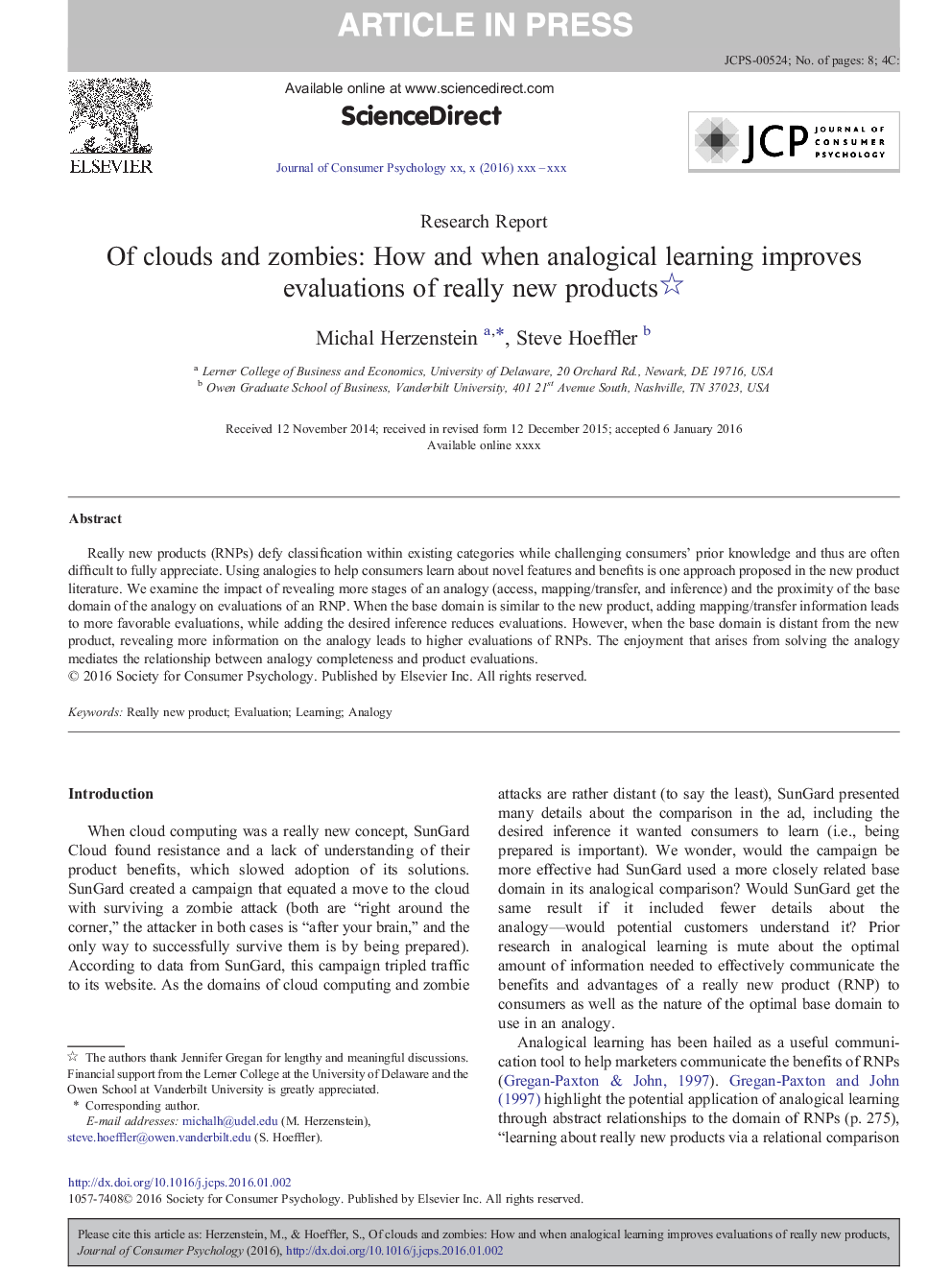| Article ID | Journal | Published Year | Pages | File Type |
|---|---|---|---|---|
| 5034295 | Journal of Consumer Psychology | 2016 | 8 Pages |
Abstract
Really new products (RNPs) defy classification within existing categories while challenging consumers' prior knowledge and thus are often difficult to fully appreciate. Using analogies to help consumers learn about novel features and benefits is one approach proposed in the new product literature. We examine the impact of revealing more stages of an analogy (access, mapping/transfer, and inference) and the proximity of the base domain of the analogy on evaluations of an RNP. When the base domain is similar to the new product, adding mapping/transfer information leads to more favorable evaluations, while adding the desired inference reduces evaluations. However, when the base domain is distant from the new product, revealing more information on the analogy leads to higher evaluations of RNPs. The enjoyment that arises from solving the analogy mediates the relationship between analogy completeness and product evaluations.
Keywords
Related Topics
Social Sciences and Humanities
Business, Management and Accounting
Marketing
Authors
Michal Herzenstein, Steve Hoeffler,
